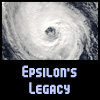| cieldumort |
| (Moderator) |
| Fri Sep 15 2023 08:01 PM |

|
|
|
Reliable data shows that the earth is warming, with waters also warming. Most scientists have concluded that this is a consequence of human activity.
Whatever the cause (I'm convinced it is human activity, but I want to save causal discussions for other threads as they seem to go off the rails), some studies have been made to tease out the impacts on Medicanes with global warming.
This study from 2020 Modelling a tropical-like cyclone in the Mediterranean Sea under present and warmer climate suggests that in a warmer world, medicanes would become even more tropical ("once the cyclone shifts to a deep warm core, the structure of the deep warm core is strengthened, and consequently, some ensembles of simulated cyclones reach much larger values of deep warm core"), as well as induce some changes to their preferred tracks.
There are some initial statements made in the above referenced study that I consider definitionally incorrect, biased and reject out of hand. These are found in the following paragraph
Quote:
These tropical-like cyclones are called Mediterranean hurricanes or medicanes (this term is used hereafter). Although there are many similarities between medicanes and tropical cyclones, there are also clear differences between them. Firstly, the lifetime of medicanes is shorter than most tropical cyclones. Secondly, the development of tropical cyclones generally requires that sea surface temperatures (SSTs) exceed the empirical threshold of 26 â—¦C. However, SSTs in the Mediterranean Sea are almost never this warm, with autumn and winter SSTs varying from around 18 to 23 â—¦C in the current climate (e.g. Shaltout and Omstedt, 2014; Fig. 2a). This is much lower than the empirical threshold of 26 â—¦C for tropical cyclone formation and the occurrence of tropical cyclones over such cold SSTs is very rare even in the tropics (cf. Pacific and Atlantic cold tongue; e.g. Jin, 1996; Caniaux et al., 2011). Another difference between medicanes and tropical cyclones is that the formation of medicanes is generally triggered by an intrusion of trough-like systems or cut-off lows over the Mediterranean
Breaking them down:
1. "Firstly, the lifetime of medicanes is shorter than most tropical cyclones."
The lifetime of a Tropical Cyclone does not bear on whether or not it is a Tropical Cyclone. While it is true that most Medicanes in their tropical phase are shorter-lived than most TCs in other basins, the same can be said of many TCs in other basins, particularly the North Atlantic.
That they are shorter-lived than "most" TCs around the world is just irrelevant.
2. "Secondly, the development of tropical cyclones generally requires that sea surface temperatures (SSTs) exceed the empirical threshold of 26 â—¦C."
This is also simply not correct. Many Tropical Cyclones, especially those that develop from disturbances other than Easterly African Waves (AEWs), form over waters at or below 26 â—¦C.
3. "Another difference between medicanes and tropical cyclones is that the formation of medicanes is generally triggered by an intrusion of trough-like systems or cut-off lows"
It's as if the study authors never heard about "home-grown" Tropical Cyclones, which occur in all hurricane basins to greater or lesser extents. It doesn't matter the source disturbance. Once a cyclone has transitioned into a Tropical Cyclone, it is by definition, a Tropical Cyclone.